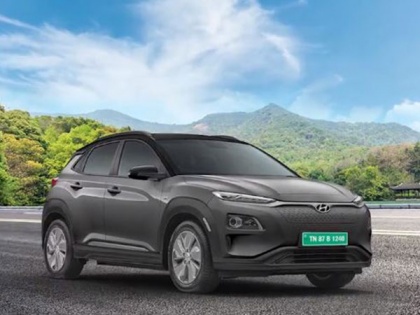Hyundai raises 2030 electric vehicle annual sales target to 2 million
By ANI | Published: June 21, 2023 10:30 AM2023-06-21T10:30:48+5:302023-06-21T10:35:08+5:30
Seoul [South Korea], June 21 : Hyundai Motor Company aims to boost its annual electric vehicle sales to 2 ...

Hyundai raises 2030 electric vehicle annual sales target to 2 million
Seoul [South Korea], June 21 : Hyundai Motor Company aims to boost its annual electric vehicle sales to 2 million units by 2030, against its earlier target of 1.87 million, in line with rising global demands.
Considering that the proportion of global EV production is set to increase from 8 per cent this year to 34 per cent in 2030, the automaker plans to expand production by region through a two-track approach assembly line conversion in Internal Combustion Engine-based factories and new dedicated EV plant establishment.
"Since the demand for ICE vehicles remains high, the company is currently producing EVs on mixed production lines as it is more cost-efficient than building more EV-dedicated factories. By utilizing existing lines, construction time is much shorter than building new plants and can be ramped up quickly to meet EV demand," Hyundai said in a release.
Hyundai Motor Company hosted its '2023 CEO Investor Day' in Seoul Tuesday (local time), unveiling its visionary mid- to long-term business strategies and financial plans.
The company said it has also raised sales targets for major regions and is preparing to adjust its sales target according to the market demand.
In terms of profitability in the EV segment, Hyundai Motor is targeting more than 10 per cent by 2030.
Hyundai plans to invest a total of South Korean won 109.4 trillion from 2023 to 2032, with an average annual investment of around KRW 11 trillion. It includes KRW 47.4 trillion for R&D, KRW 47.1 trillion for capital expenditure, and KRW 14.9 trillion for strategic investments.
"The next three years will be dominated by a 50/50 funding split between ICE vehicles and future technologies. From 2026 onward, when EV volume expansion and the application of next-generation EV platforms are in full swing, investment in ICE will gradually decrease," it said.
Hyundai is currently producing EVs in this way at its plants in the US, South Korea, the Czech Republic, and India; it plans to convert additional lines as market demand dictates. Hyundai's first dedicated EV factory in Georgia, US, is under construction which will have an annual production capacity of 300,000 units and is expected to be commissioned in the second half of 2024.
A dedicated EV factory in Korea, which is being established with an investment of about KRW 2 trillion, aims to start mass production in 2025 to cater to domestic and export demand.
Established in 1967, Hyundai Motor Company offers a range of vehicles and mobility services in more than 200 countries.
.
Disclaimer: This post has been auto-published from an agency feed without any modifications to the text and has not been reviewed by an editor
Open in app